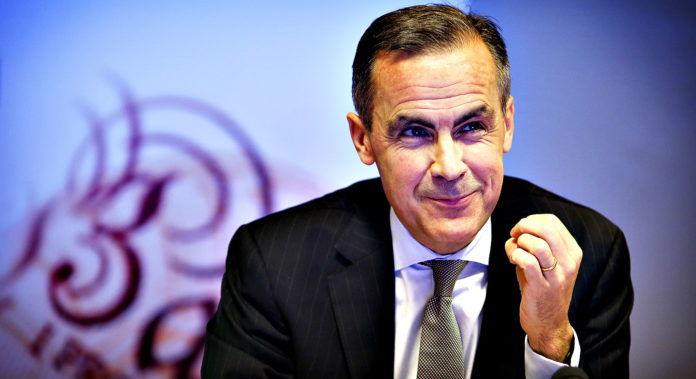
The recent comments by the governor of Bank of England, Mark Carney, has opened discussions on whether digital currencies will soon be accepted in United Kingdom despite the risks associated with them such as price volatility. In a recent interview that was covered in an article posted on Blokt, Mark is on record stating that he is open minded about the introduction of cryptocurrency in the United Kingdom.

He made the comments during the Riksbank Anniversary Conference that was held in Sweden on Tuesday last week. He stated that the future of the bank industry lies in the implementation of the Central Banking Digital Currency commonly abbreviated as CBDC. Mark also went a step further to rule out use of bitcoin as a mainstream currency in UK due to the risks associated with it and the fact that very few people use as a medium of exchange.
BritCoin Set to Take Over the Industry
According to a press statement by the primary founders of BritCoin, the digital currency main objective is to resolve the challenges that other similar digital assets have failed to address amicably. At the same time, the currency will ensure that it maintains the ethics and values of the British financial industry during all its operations and processes.
One of the underlying concepts that will power BritCoin is the believe that if a digital currency that is based on a robust blockchain network is distributed to a large number of users who are within a confined geographical area, is destined to record high acceptance and penetration than a global crypto.
BritCoin Concept Not New
It is important to note that the BritCoin concept is not new in the financial industry. A number of trials have already been done in countries such as Israel, Iceland, and Span, but none of the mentioned countries are yet to release a report to prove that the concept was successful.

For example, Auroracoin that was developed in Iceland was extensively marketed than all other national cryptocurrencies in February 2014. The publicity had a major impact on its value such that at one point it was ranked as the 4th most valuable cryptocurrency in the world. Since then, it has dropped in value thereby raising questions about the practicality of the currency.
After the independence referendum held in 2014, Scotland also came up with their own currency which was referred to as Scotcoin. The main objective for creating this currency was to lower the country’s reliance on the fiat pound. The developer of this digital currency, David Low, has already submitted proposals to the government to make Scotcoin the main crypto in the country.
Final Remarks
United Kingdom has never come up with a firm position about the impact of cryptocurrency on the economy. Despite numerous calls for regulation, Mark Carney has remain adamant that Bank of England has an open-minded approach to cryptocurrencies.
9,254 total views, 3 views today





